News
The dizzying costs of essentials play on the minds of budget sceptics
View(s):By Kasun Warakapitiya
The government is fixated on creating economic stability while providing relief to the people. The people said the government should take steps to reduce the soaring cost of living and stabilise the economy.
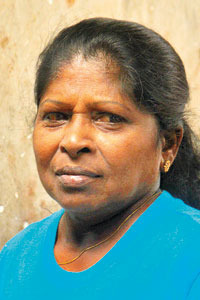
Sumithra Ekanayake,
They expect relief and anticipate more taxes as the government intends to abide by the International Monetary Fund proposals to obtain the next bailout.
The general public was further burdened by the recent increase of the Value-Added Tax (VAT) from 15% to 18%, an increase in the electricity tariff, and the recent fuel price revision, with the prices of petrol octane 95, auto, and super diesel, and kerosene going up while the price of petrol octane 92 went down.
People vented their frustration at the government about high inflation and the soaring cost of living.
Dematagoda resident Sumithra Ekanayake, 54, says she does not expect more from the government but hopes for a reduction in the cost of living.
She called on the government to increase the income of state and private sector employees, as people are unable to survive as the cost of every item and service has increased.
“We should send the government home; if it can’t even increase the salary of a person by Rs 20,000, they are useless. The state of the country is pathetic, as people are finding it difficult to survive,’’ she said.
People are uncertain about the prices of goods and services as sudden price fluctuations in fuel as well as unexpected tax increases cause the cost of living to further rise.
Liyanaarchchige Premalal, a businessman who transports goods to shops, said he is uncertain whether the budget proposals would even be properly implemented as fuel and tax increases could occur suddenly.
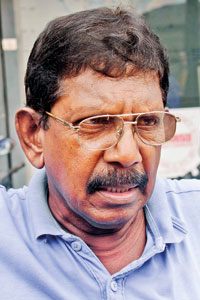
Liyanaarchchige Premalal
“Suddenly, diesel prices increased, and as a result, transport costs increased. Yet I have not increased my charges, as I am unable to stay in business if I do that every time the government increases prices. So far, fuel prices have been increased four times,’’ he said.
Wellampitiya resident Mr. Premalal said that earlier, the people waited for the budget to learn of government concessions and increases in the prices of goods.
A three-wheel driver, R.A. Ruwan, said that the budget is a charade whereby politicians deceive people. At the end of every year, politicians give the public hope by reading budget proposals in parliament.
“The budget proposals remain as proposals, but fuel prices, electricity tariffs, and taxes change before or after the budget. Government employees can fight for salary hikes and are even able to demand them via unions, but private three-wheel operators are unable to do so; they face hardships,’’ he said.
Employees of state-owned enterprises, too, lamented that they were finding it difficult to cope with the cost of living. They added that they are subjected to restrictions on overtime pay.
R. Chandralal, 45, an SOE employee from Kolonnawa, said, “We don’t expect a salary hike; we don’t even expect anything to happen from the budget, but the people’s needs are such that the cost of living should be reduced and the salaries increased.”
He said state employees have to make sacrifices to redeem the damage caused by ministers who mismanage government institutes by deviating from budget plans.
Meanwhile, retired state employee Sarath Perera told the Sunday Timesthat the government cannot sustain the state sector as the state employees have exceeded the required amount as the minister’s employees and their supporters in state institutes.
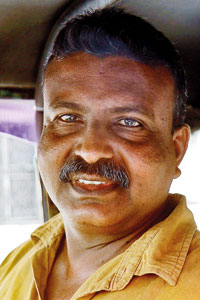
R.A. Ruwan,
Due to the economic crisis, it is impractical to provide concessions and welfare for the people, he said.
“Politicians know of the upcoming elections, so they would try to provide concessions to lure people to vote for them; this would make the economy worse, therefore the enticing budget proposals can’t be implemented in the long run.’’
Farmers expected fertiliser concessions and also called for the government to create a national policy to manage cultivation via the budget.
Trade unions and associations have made several demands to cope with the rising cost of living. Electricity users, private bus owners, teachers, and trade unions are among them.
Sanjeewa Dammika, the General Secretary of the Electricity Users Association, said that although budget proposals are read out in parliament, they are seldom implemented.
He said that during the 2018–2019 period, the government made a budget proposal to provide solar panels to places of worship, but it has not been implemented yet.
“There are no allocations made in the budget to increase MPs’ salaries, but they get their salaries increased; the budget gives us false hope,’’ he added.
Meanwhile, the teachers’ unions warned of strikes if salary demands were not met.
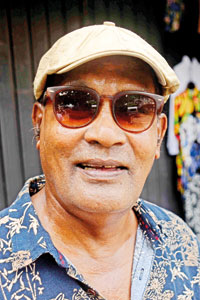
Sarath Perera
Joseph Stalin, the General Secretary of the Ceylon Teachers Union, said they demanded that the government provide the remaining two-thirds of the salary increase and relieve the burden on parents, who have to bear school maintenance fees and school development expenses.
“School books, bags, and stationery items are too expensive. The government must make these affordable for the children in the budget.”
The transport sector was also affected as fuel prices were revised from time to time. Bus service providers said that they expect some relief from the budget.
Gemunu Wijeratne, the head of the Private Bus Owners Association, said he will not accept proposals and that the government should implement their demands through the budget, such as reducing the leasing interest rates for low-floor buses and full concessions.
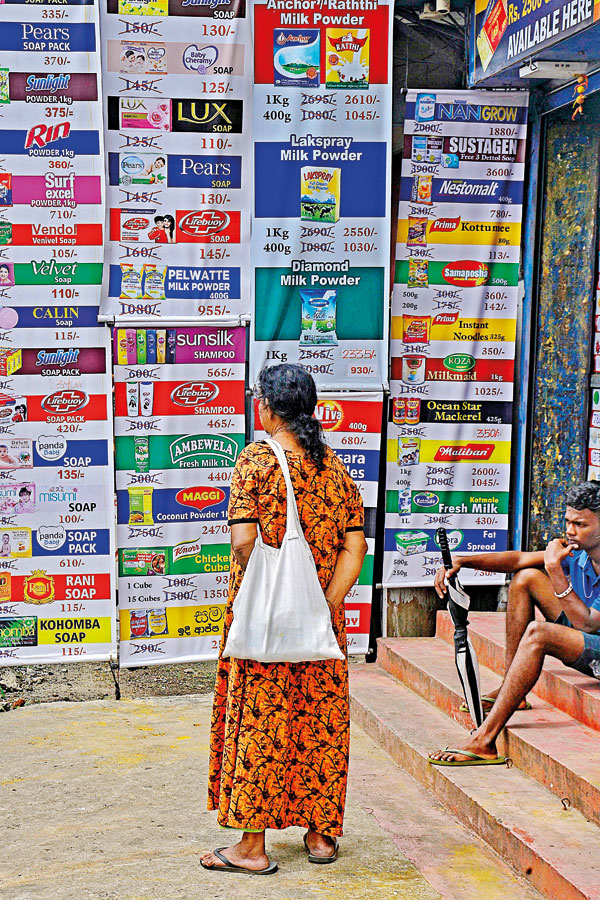
No respite from the soaring cost of living. Pix by Eshan Fernando
| Doctors place proposals on the table The Government Medical Officers Association (GMOA) is scheduled to meet President Ranil Wickremesinghe on Thursday, November 9, to discuss their demands and proposals. GMOA Secretary Dr. Haritha Aluthge told the Sunday Times that they submitted proposals to the government on retaining medical professionals. He said most professionals are leaving, and some medical units are on the verge of collapse. “The government can entice doctors to remain in government hospitals by increasing the basic salary of doctors to satisfactory levels according to market value,” he said. The GMOA is also calling for an increase in the Disturbance Availability Transport allowance, which has not been increased since 2015. “The allowance is a fixed amount of Rs 35,000 and is insufficient, so we request the government to provide them with a fuel quota instead as fuel prices have changed,” he added. Dr. Aluthge said trade union actions in provinces are being suspended in response to the government’s positive reaction to a meeting with the president. But if demands are not met, an island-wide strike will be held. | |
The best way to say that you found the home of your dreams is by finding it on Hitad.lk. We have listings for apartments for sale or rent in Sri Lanka, no matter what locale you're looking for! Whether you live in Colombo, Galle, Kandy, Matara, Jaffna and more - we've got them all!

